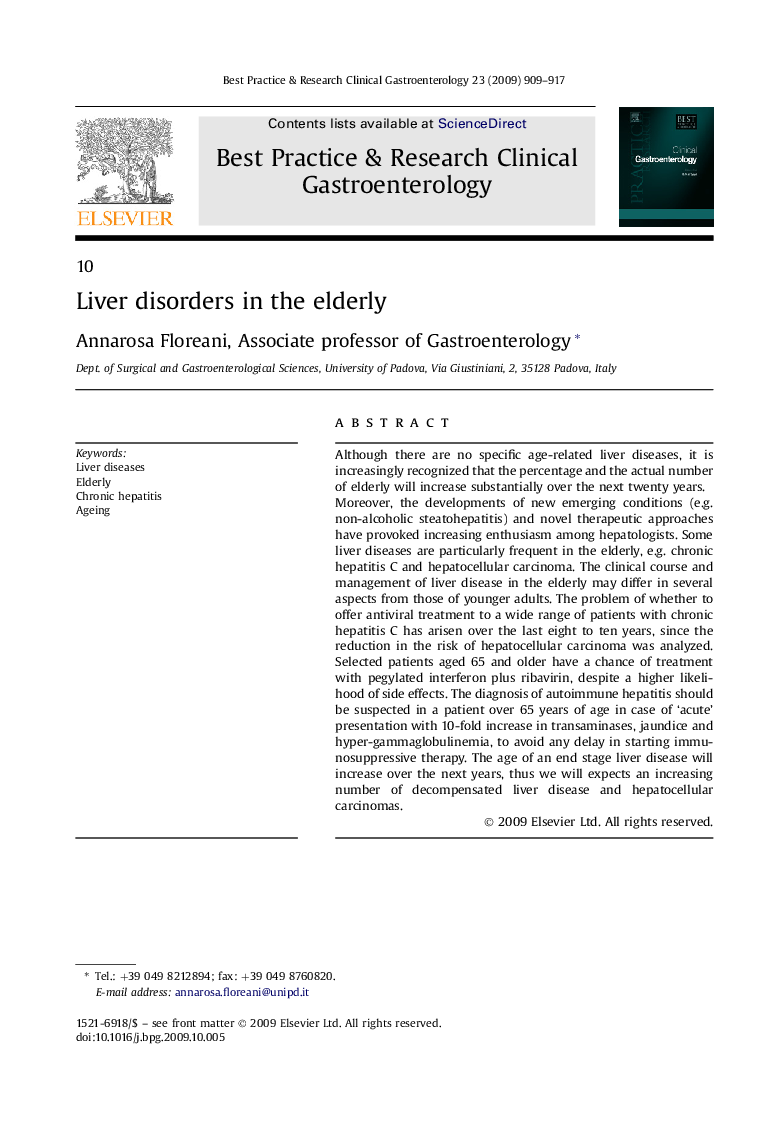| Article ID | Journal | Published Year | Pages | File Type |
|---|---|---|---|---|
| 3254487 | Best Practice & Research Clinical Gastroenterology | 2009 | 9 Pages |
Although there are no specific age-related liver diseases, it is increasingly recognized that the percentage and the actual number of elderly will increase substantially over the next twenty years.Moreover, the developments of new emerging conditions (e.g. non-alcoholic steatohepatitis) and novel therapeutic approaches have provoked increasing enthusiasm among hepatologists. Some liver diseases are particularly frequent in the elderly, e.g. chronic hepatitis C and hepatocellular carcinoma. The clinical course and management of liver disease in the elderly may differ in several aspects from those of younger adults. The problem of whether to offer antiviral treatment to a wide range of patients with chronic hepatitis C has arisen over the last eight to ten years, since the reduction in the risk of hepatocellular carcinoma was analyzed. Selected patients aged 65 and older have a chance of treatment with pegylated interferon plus ribavirin, despite a higher likelihood of side effects. The diagnosis of autoimmune hepatitis should be suspected in a patient over 65 years of age in case of ‘acute’ presentation with 10-fold increase in transaminases, jaundice and hyper-gammaglobulinemia, to avoid any delay in starting immunosuppressive therapy. The age of an end stage liver disease will increase over the next years, thus we will expects an increasing number of decompensated liver disease and hepatocellular carcinomas.
